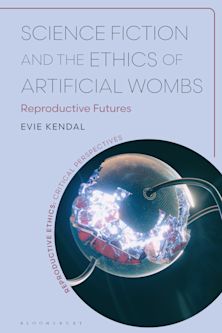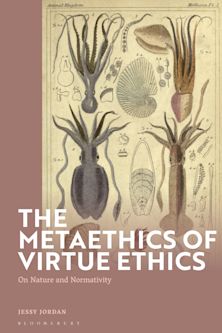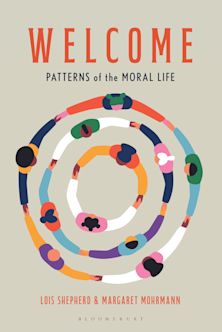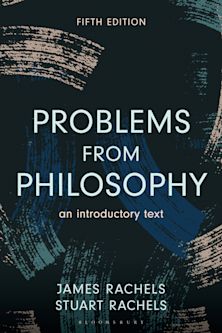- Home
- ACADEMIC
- Philosophy
- Ethics and Moral Philosophy
- Odera Oruka and the Right to a Human Minimum
Odera Oruka and the Right to a Human Minimum
An African Philosopher's Defense of Human Dignity and Environment
Odera Oruka and the Right to a Human Minimum
An African Philosopher's Defense of Human Dignity and Environment
You must sign in to add this item to your wishlist. Please sign in or create an account
Description
Odera Oruka and the Human Minimum: An African Philosopher’s Defense of Human Dignity and Environment considers the work of Odera Oruka (1944–1995)—arguably one of the finest philosophers in Africa—by analyzing his major practical contribution to philosophy from a practical point of view. Odera Oruka is well known for his sage philosophy, but his “practical philosophy” has received less attention. This book situates Oruka within philosophical discourses of justice, human rights, ethical duty, ecology, humanism, and politics. A thread that ties these questions together is Oruka’s argument for the right to a human minimum, defined by three basic human needs: physical security, subsistence, and health care. Michael Kamau Mburu explores how these three taken together constitute the most basic and necessary (though not sufficient) right, and how establishing this right is a means to ensuring human dignity, which is a condition for global justice. The book also expounds and applies some ethical values and philosophies from Africa—such as “ubuntu” or humanness—to clarify, defend, and promote human dignity without jeopardizing the environment.
Table of Contents
Chapter One: The Legacy of H. Odera Oruka in Philosophy
Chapter Two: Oruka's Commitment to Practical Philosophy
Chapter Three: On Human Rights: A Possible Definition
Chapter Four: A Critique to the Current Human Rights Discourse
Chapter Five: The Human Minimum: Towards an Ethical Standard of Living
Chapter Six: The Right to A Human Minimum
Chapter Seven: Toward Global Justice
Chapter Eight: Eco-philosophy and Parental Earth Ethics
Chapter Nine: Humanism, Ecology and Global Justice
Selected Bibliography
Index
About the Author
Product details
| Published | 21 Jun 2022 |
|---|---|
| Format | Ebook (PDF) |
| Edition | 1st |
| Extent | 158 |
| ISBN | 9781978776906 |
| Imprint | Lexington Books |
| Series | African Philosophy: Critical Perspectives and Global Dialogue |
| Publisher | Bloomsbury Publishing |
About the contributors
Reviews
-
Odera Oruka (1944–1995), known for his efforts in explicating, ensouling, and embodying African philosophy as sage philosophy, contends in his practical writings for a ‘right to a human minimum’ ensuring ‘physical security, health care, and subsistence.’ This human minimum supports a life fully capable of moral engagement and creativity. Michael Kamau Mburu’s book defends the continuing relevance of Oruka’s arguments from a practical point of view. He shows the way Oruka justifies the human minimum in order to challenge us to pursue ‘global justice’ in place of merely ‘international justice,’ and to embrace an eco-centric and eco-humanistic rather than anthropocentric ‘parental earth ethics.’ Oruka’s very contemporary practical philosophy is shown to derive inspiration from pre-colonial African custom and thought.
Ronald Polansky, professor emeritus, Duquesne University
-
How human beings should relate to each other, as well as to their environment, has been a matter of concern for a long time, to which various solutions have been offered. This monograph provides a refreshing perspective on this relationship. The book examines Lockean philosophy, as well as some current human rights accounts, and then advances the argument that the right to a human minimum—that is, the right to physical security, subsistence, and health care—is the most basic and necessary means to achieve egalitarian and ecological fairness. In his analysis, Mburu adopts Odera Oruka’s practical philosophy, which, unlike theoretical notions of philosophy, is a philosophy that is geared towards genuine improvement of people’s lives without disturbing the environment.
Odera Oruka and the Right to a Human Minimum appeals to a wide range of readers. Besides appealing to the general lay reader interested in learning more about human relations, it would also interest academics working in the areas of ethics, human rights, global justice, social and political philosophy, African studies, environmental ethics, international relations, and eco-philosophy.Frederick Ochieng'-Odhiambo, University of the West Indies, Cave Hill

ONLINE RESOURCES
Bloomsbury Collections
This book is available on Bloomsbury Collections where your library has access.



































